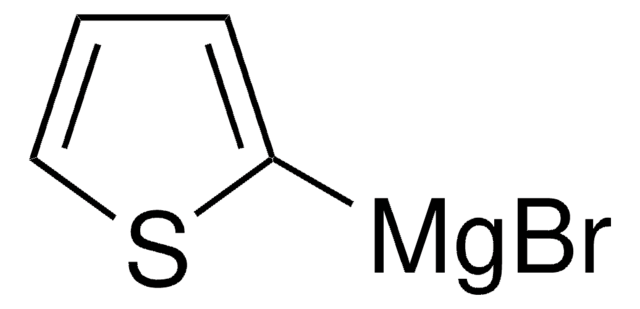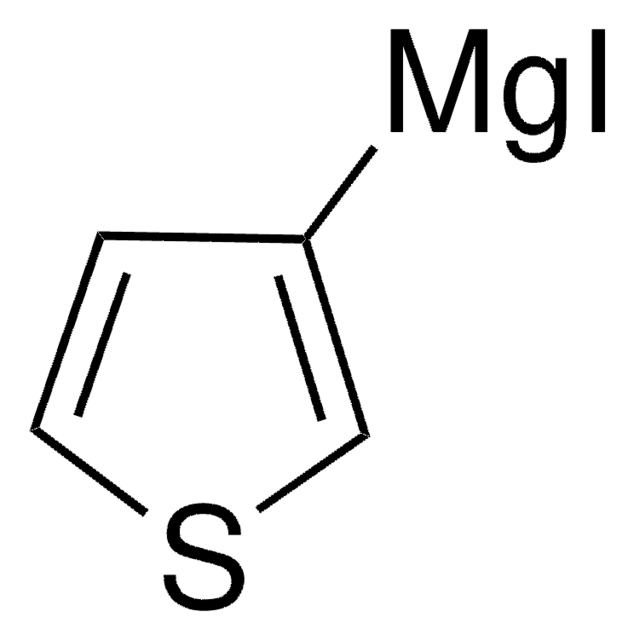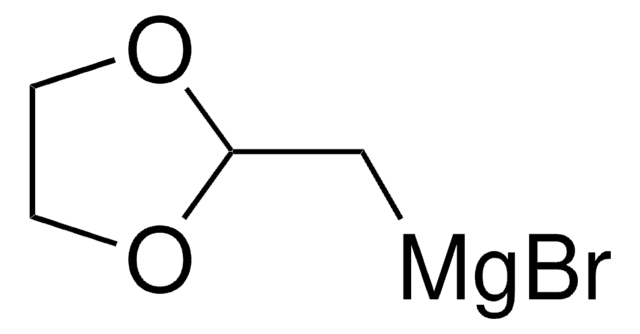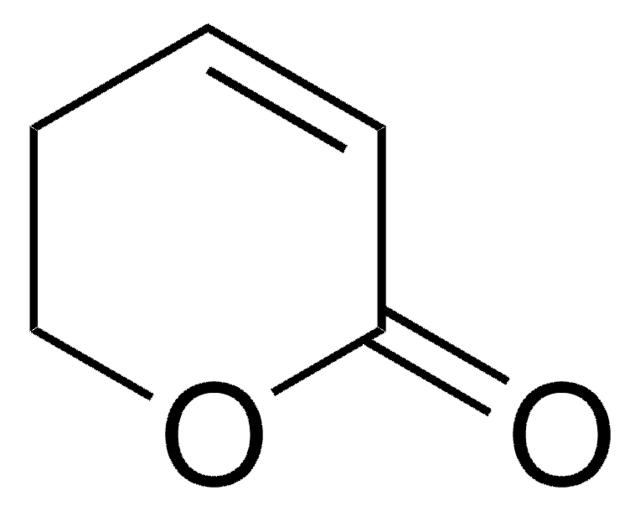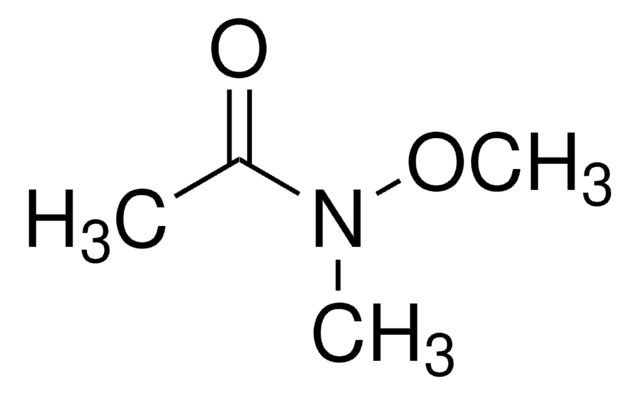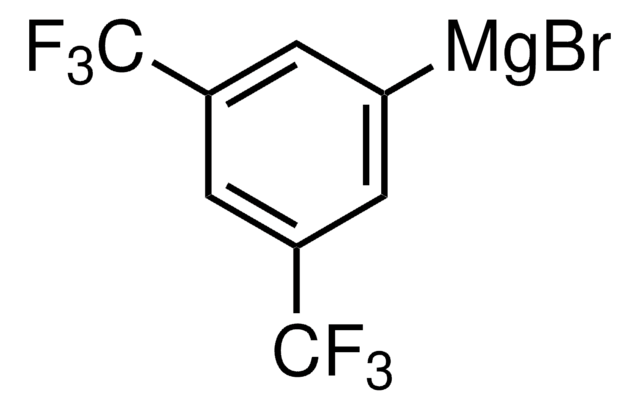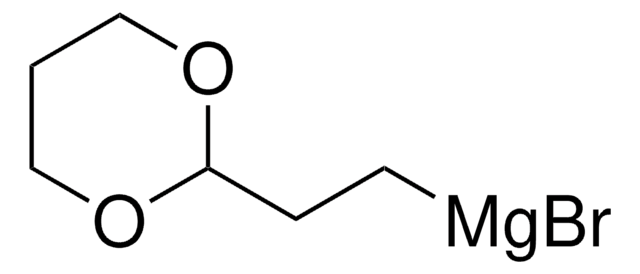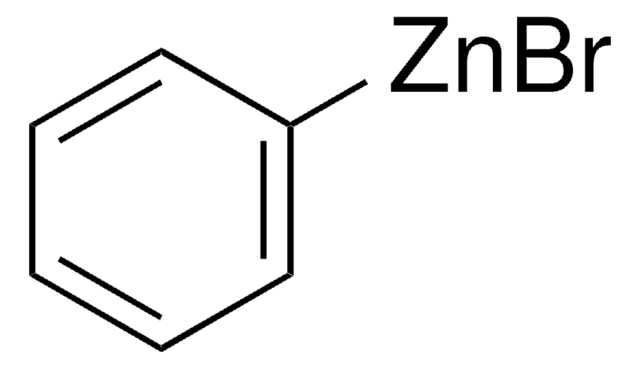856525
2-Methyl-1,2-di-3-pyridyl-1-propanone
96%
Synonym(s):
Metyrapone, Su-4885
Sign Into View Organizational & Contract Pricing
All Photos(3)
About This Item
Empirical Formula (Hill Notation):
C14H14N2O
CAS Number:
Molecular Weight:
226.27
Beilstein:
163023
EC Number:
MDL number:
UNSPSC Code:
12352100
PubChem Substance ID:
NACRES:
NA.22
Recommended Products
Quality Level
Assay
96%
form
powder
mp
52-55 °C (lit.)
functional group
ketone
SMILES string
CC(C)(c1cccnc1)C(=O)c2cccnc2
InChI
1S/C14H14N2O/c1-14(2,12-6-4-8-16-10-12)13(17)11-5-3-7-15-9-11/h3-10H,1-2H3
InChI key
FJLBFSROUSIWMA-UHFFFAOYSA-N
Looking for similar products? Visit Product Comparison Guide
Related Categories
Application
2-Methyl-1,2-di-3-pyridyl-1-propanone inhibits the biosynthesis of corticosterone by blocking the conversion of deoxycorticosterone to corticosterone. It is widely used in adrenocortical-related clinical studies.
Signal Word
Warning
Hazard Statements
Precautionary Statements
Hazard Classifications
Acute Tox. 4 Oral - Eye Irrit. 2 - Skin Irrit. 2 - STOT SE 3
Target Organs
Respiratory system
Storage Class Code
11 - Combustible Solids
WGK
WGK 3
Flash Point(F)
Not applicable
Flash Point(C)
Not applicable
Personal Protective Equipment
dust mask type N95 (US), Eyeshields, Gloves
Choose from one of the most recent versions:
Already Own This Product?
Find documentation for the products that you have recently purchased in the Document Library.
Secretion of cortisol and aldosterone as a vulnerable target for adrenal endocrine disruption?screening of 30 selected chemicals in the human H295R cell model.
Uller?s E, et al.
Journal of Applied Toxicology, 28(8), 1045-1053 (2008)
The relationship between adrenocortical function and Hsp70 expression in socially isolated Japanese quail.
Soleimani AF, et al.
Comparative Biochemistry and Physiology. Part A, Molecular & Integrative Physiology, 161(2), 140-144 (2012)
Laia Ribas et al.
The Journal of experimental biology, 220(Pt 6), 1056-1064 (2017-01-14)
The zebrafish (Danio rerio) has become a well-established experimental model in many research fields but the loss of the primary sex-determining region during the process of domestication renders laboratory strains of zebrafish susceptible to the effects of environmental factors on
Screening for modulatory effects on steroidogenesis using the human H295R adrenocortical cell line: a metabolomics approach.
Rijk JCW, et al.
Chemical Research in Toxicology, 25(8), 1720-1731 (2012)
Therese Koal et al.
The Journal of steroid biochemistry and molecular biology, 129(3-5), 129-138 (2012-01-03)
In order to overcome many limitations of immunoassays, high performance liquid chromatography-tandem mass spectrometry (HPLC-MS/MS) has the potential to find its place in the clinical laboratory medicine for quantification of steroid hormones. A prerequisite for the application of a new
Global Trade Item Number
| SKU | GTIN |
|---|---|
| 856525-5G | |
| 856525-1G | 4061825972879 |
| 856525-250MG | 4061832541365 |
Our team of scientists has experience in all areas of research including Life Science, Material Science, Chemical Synthesis, Chromatography, Analytical and many others.
Contact Technical Service